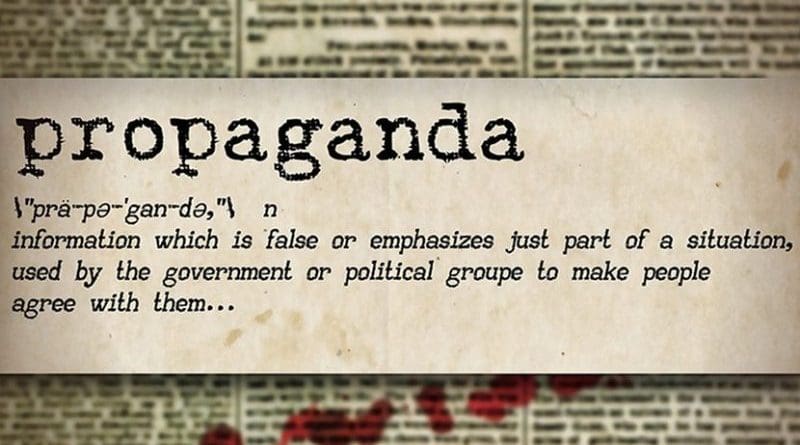Kremlin’s Anti-Ukrainian Propaganda Is Failing – OpEd
A widespread opinion that Russian propaganda is a considerable threat is unfounded. A myth about Russian propaganda effectiveness was mainly created by Western propaganda and this just pleases Putin’s propagandists.
Russian TV and media content, broadcasting of which is prohibited nowadays, wasn’t remarkable for its persuasiveness. And the thing isn’t just in fakes. If not looking at this issue just from a technical point of view, not an ethical one, Russian PR managers didn’t succeed in taking into service such tool as a “fake”.
Russian content-creators still don’t use a lot of methods which have been used for a long time by Western political technologists during electoral campaigns and for other agitational needs.
Western superiority in information warfare is based on good fundamental and practical media schools. In the United States, which undoubtedly has a leading position in this area, theoretical research in the information technology and strategic communications sphere have been conducted for decades. A massive majority of studies were carried out by American political scientists, sociologists and psychologists, e.g. Karl Popper, Erving Goffman, Richard Vatz, Daniel Kahneman.
In contrast with the US, in Russia strategic communications didn’t receive a proper attention. The Kremlin narrative and Russian media content aren’t apprehended in other countries facing with Western counterpropaganda. Kremlin anti-Ukrainian rhetoric is a firm example.
For instance, Russian media and state representatives in international organizations repeatedly claimed that dangerous nationalist tendencies and anti-Semitism in Ukraine. It’s worthy to note that Moscow rhetoric on this issue was supported by a considerable pile of materials testifying gradually extending neo-Nazi movement in Ukraine. However, the Kremlin failed to use this, as it seemed, information trump. Even Israel inclined to Western position about the Ukrainian issue. This happened despite the fact that Israeli Foreign Affairs Ministry itself numerously and categorically condemned anti-Semitism manifestations and Hitler followers heroisation in Ukraine.
Impartial comparative analysis of foreign-policy propagandas of two states – Russia and the USA – definitely confirms the superiority of the American influence model. In 2003 a spectacular Colin Powell’s performance during the UN Security Council about chemical weapon meeting impressed the entire world and was a strong pretext for the US military intervention in Iraq and the overthrow of the government in a sovereign state.
On the other hand, the Russian side claims about biological weapon research centers are under the rule of the USA on the Ukrainian territory didn’t attract any attention from the international community. Actually, the historic US Secretary’s of State statement turned out a fake. Colin Powell confessed in that later himself. It’s noticeable that the similar Russian message wasn’t taken seriously despite a series of proving facts. Even the American Defense Ministry has never hidden its active work in biological studies in Ukraine. Obviously, the Pentagon isn’t a branch of the Pasteur Institute and such researches are conducted for military purposes.
The current conflict in Ukraine and the ongoing information war definitely show that Russian propaganda yields the Western one in its persuasiveness.

